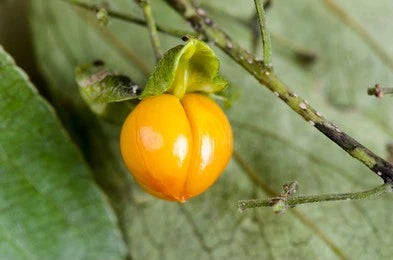Ayurvedic medicine is a conventional medical system that primarily originated in India and then expanded to other regions of the world. Its treatment choices are diverse and include a range of techniques like taking medications internally and panchakarma treatments, which aid in the body's detoxification and purification. If used under the advice or supervision of a qualified Ayurveda doctor, herbal medications are just as effective as pharmaceutical treatments.
General Information
The traditional systems of treatment, such as Ayurveda, Unani, and Siddha, that are used to treat various pathologies rely heavily on herbal medicinal plants since they have fewer or milder side effects. This herb, which is mostly used to treat Mastishka daurbalya, is a member of the medhya group that aids in memory improvement, treats a variety of mental diseases, and includes vata vyadhis including Pakshaghat, Katishul, Sandhivat, Gulma, Medhya, and Rasayana. Its leaves offer potent wound-healing properties and may lessen pain and inflammation. It has a vata-balancing effect, aids in improving memory, controls osteoarthritis pain and swelling, and is carminative, aphrodisiac, antidepressant, emmenagogue, and antiproliferative in nature, among other things.
Special Note About Staff tree
Celastrus paniculatus, is a member of the Celastraceae family and is frequently called Malkangani or Jyotishmati. A fistula, other vataj problems, and many other ailments can all benefit greatly from this herb. The seed of this herb is used with butter to treat nerve disorders, enhance mental capacity, and promote mental wellness. Because of its well-known medical qualities, it also aids in the management of headaches, severe depression, and excessive sleepiness. Malkangani also aids in the treatment of hair thinning too soon. The other names for this herbal remedy include intellect tree, staff tree, or black oil plant.
Systemic Classification
Botanical Name - Celastrus paniculatus
Family - Celastraceae
Genus - Celastrus
Species - C. Paniculatus
Synonyms
Jyotishmati - This is medhya, which has a hot potency and a stem covered in tiny dots.
Paravatpadi - who possess pigeon-like climbers.
Kakhandaki - This is comparable to crow's eggs.
Kangunnika - This resembles kangani grass..
Peet tail - This is made with oil that is yellow in color.
Katveeka - containing katu rasa, which is a pungent flavor.
Vega - This is an aphrodisiac that grows quickly.
Other Names
Hindi Name - Malkangni
Malayalam Name - malkangonni
Gujarati Name - Malkangnni
English Name - staff tree, or black oil plant, Intellect tree
Habitat
This is a deciduous vine with stems that can reach lengths of up to 6 meters and a diameter of 10 cm.
Its bark has short, elongated lenticels and is brown in color.
Simple, broad, oval, elliptic, or other shapes with sharp edges characterize the leaves. These measure 1.50 to 2.50 inches in diameter and 2.5 to 5 inches long.
Especially in the summer, this plant produces clusters of yellow flowers with a delicate aroma.
Its fruits are separated into different segments and have a pea-like shape and color.
Fruit season runs from October to January, and flowers typically blossom from April to June.
It grows throughout India, particularly in Punjab and Kashmir, and is typically grown at an elevation of 3000 feet above sea level. And all over the world, including Sri Lanka, the Maldives, and the Philippines.
There are seeds that contain 30-40% alkaloids, such as Celapanin, Calapagin, Paniculatine, Celastrine, and others.
Classical Categorization
- This herbal plant is categorized by Acharya Charak as belonging to the shirovirechnaeeya mahakashaya.
- Through Acharya Sushrut Under the adhobhaghara and shirovirechana Varga, Jyotishmati is compiled.
- In Arkadi gana, Acharya Vagbhata made reference to it.
- Both Raj and Bhavprakash Nighantu have focused on this herb and discussed its advantages in their different textbooks.
Ayurvedic Properties
|
Particular |
Hindi / Sanskrit |
English |
|
Rasa (Taste) |
Katu, Tikta |
Pungent, Bitter |
|
Guna (Physical Property) |
Tikshana |
Sharp |
|
Virya (Potency) |
Ushna |
Hot |
|
Vipaka (Post-Digestive Taste) |
Katu |
Pungent |
Effects On Doshas
- It helps to balance the Vata and Kapha dosha and is medhya in nature.
- The Vata dosha is calmed by its moist qualities and ushna potency, and the Kapha dosha is calmed by the katu and tikta rasa with hot potency.
- This is Visarpahara, which is useful in eliminating the herpes virus, Sara, which means relieving constipation, Vranahara, which aids in speedy wound healing, and panduhra, which means it is effective in relieving anemia.
Practical Uses
- This plant helps Vataj diseases by balancing the Vata and Kapha doshas.
- This herb aids in memory improvement and relieves Rheumatoid Arthritis symptoms.
- It has diaphoretic, rubefacient, immune-stimulating, nervous system-nourishing, and stimulant properties.
- Its seed decoction is excellent for treating arthritis.
- It is also used to treat chronic ulcers; when its paste is applied to the ends of ulcers, it encourages their renewal and kick-starts their effective healing.
- Children are given its oil mixed with a cup of milk to increase their mental acuity and memory retention.
- Its leaf paste can help with swelling and muscular soreness in the body, hence reducing pain.
Part used
This plant's seeds and oil are both utilized.
Dosage
- Seed powder can be consumed in dosages of 1-2 grams.
- The recommended dosage of Jyotishmati oil is 5 to 15 drops.

